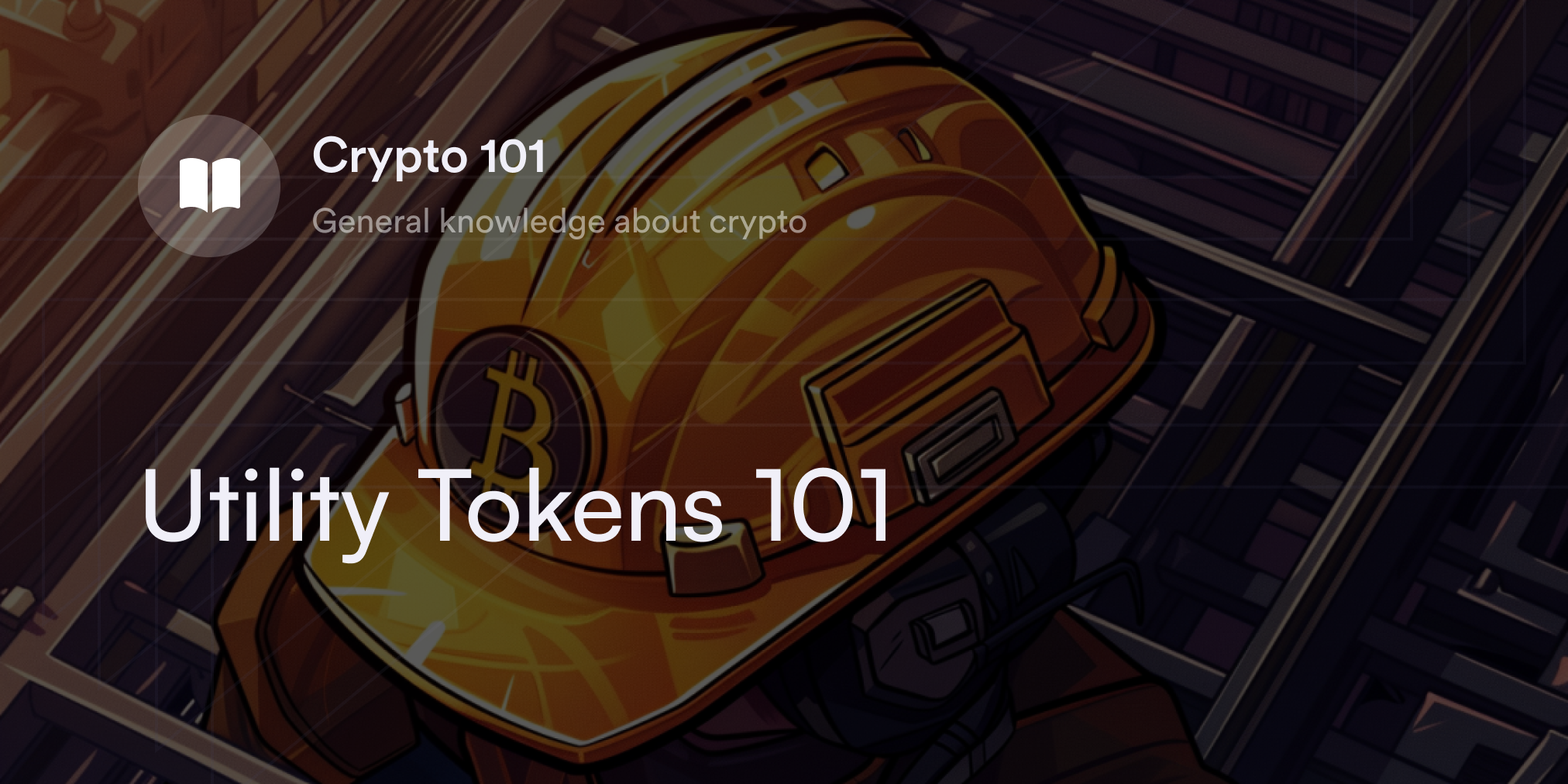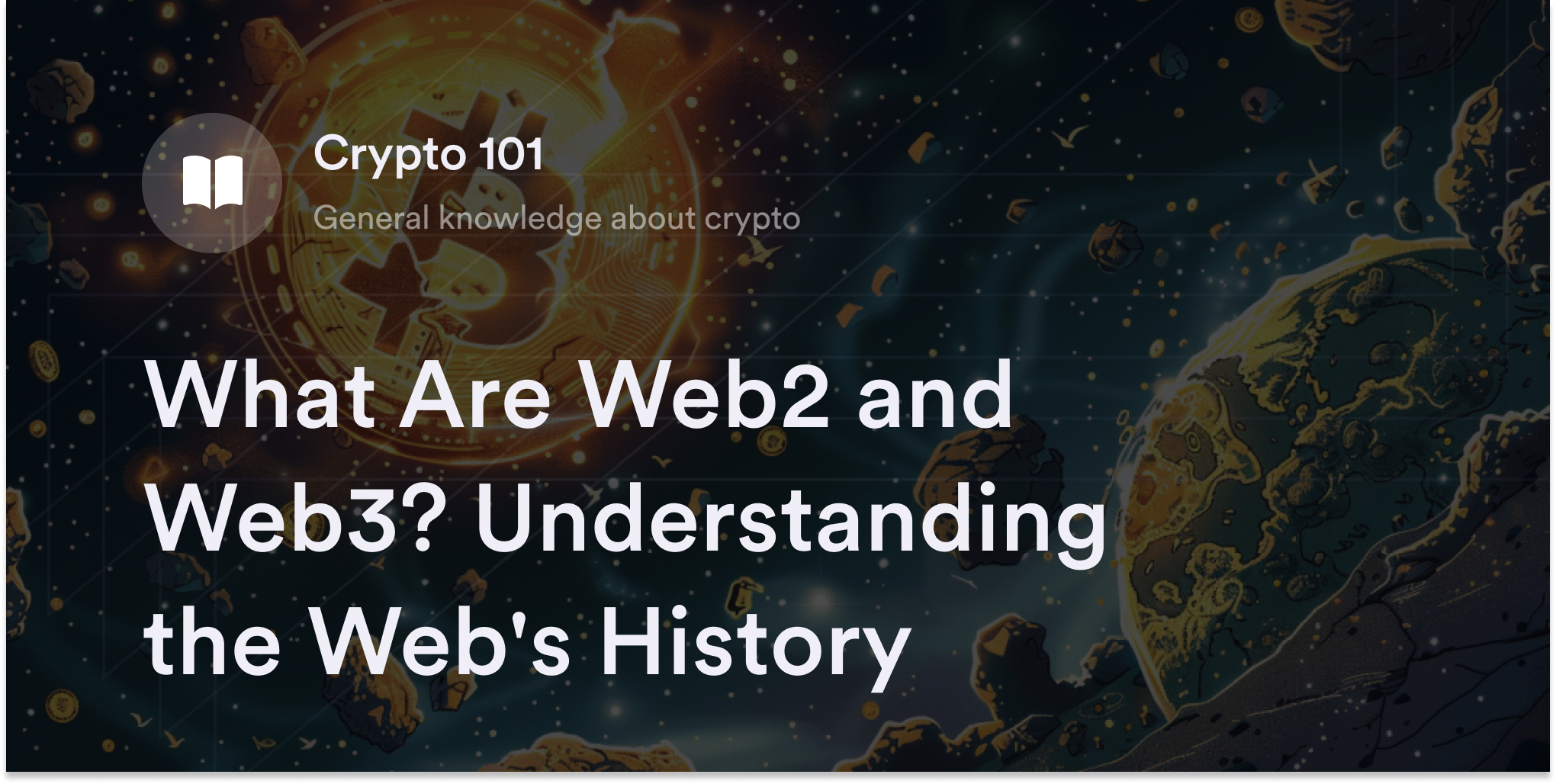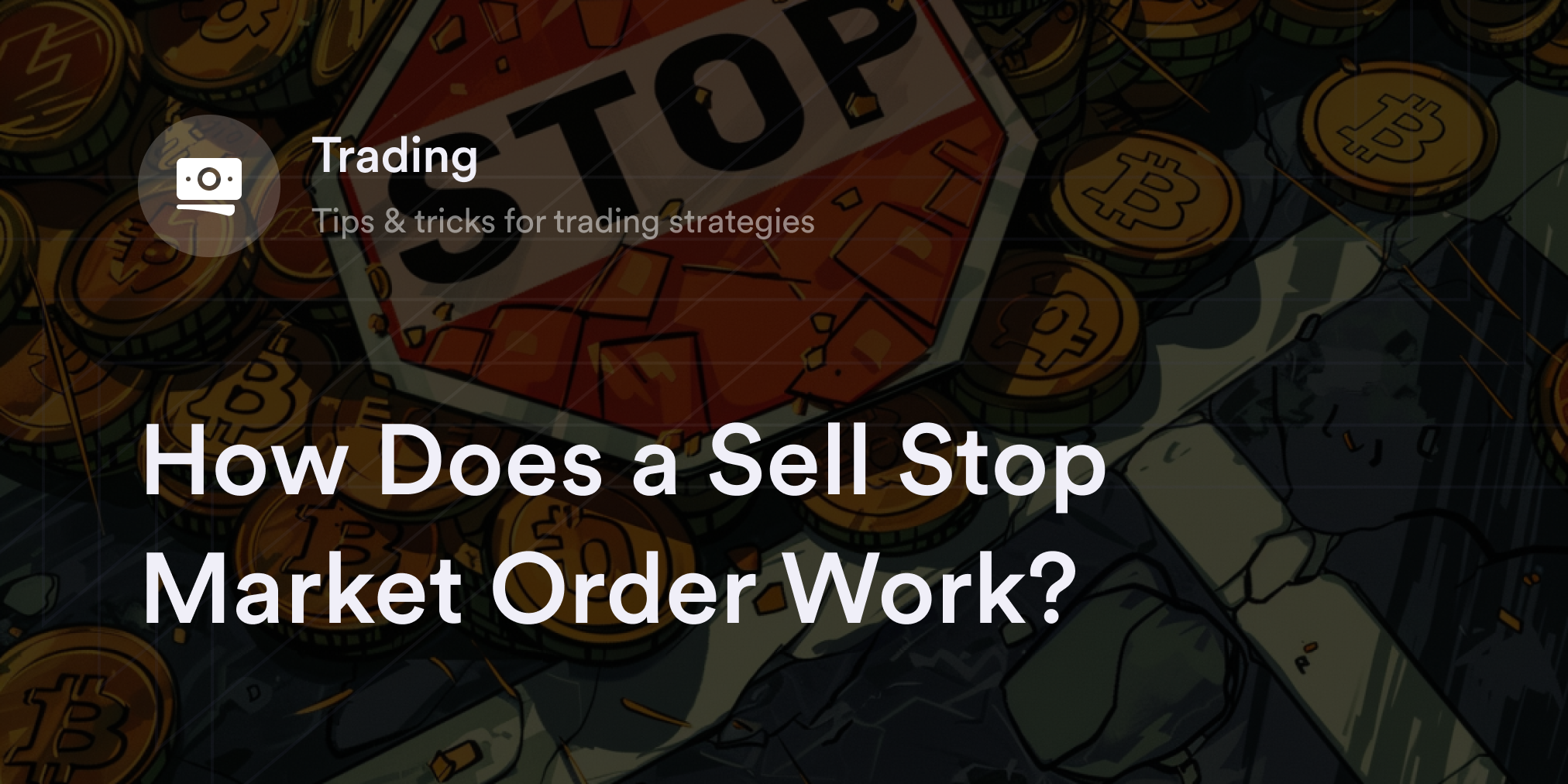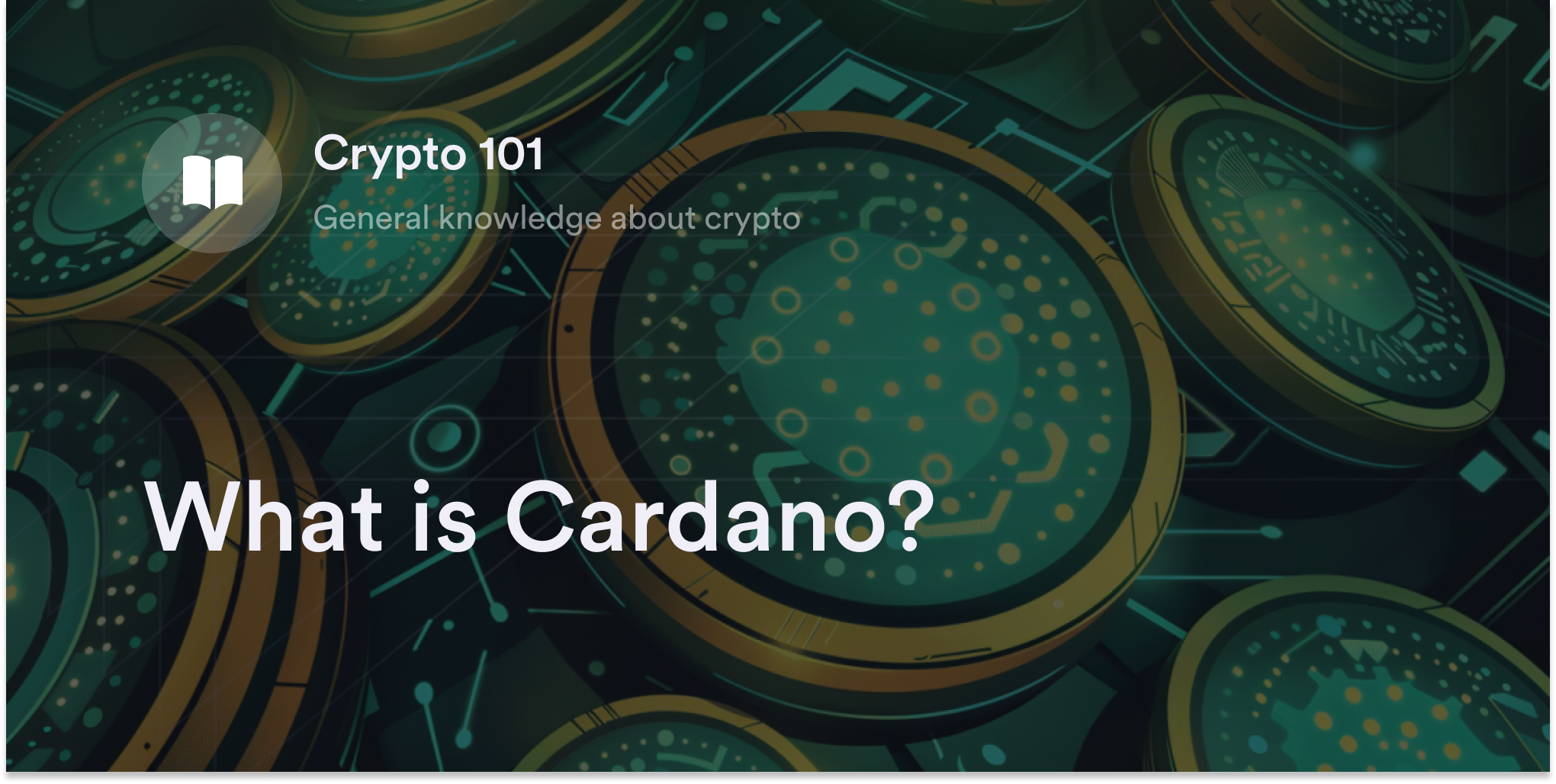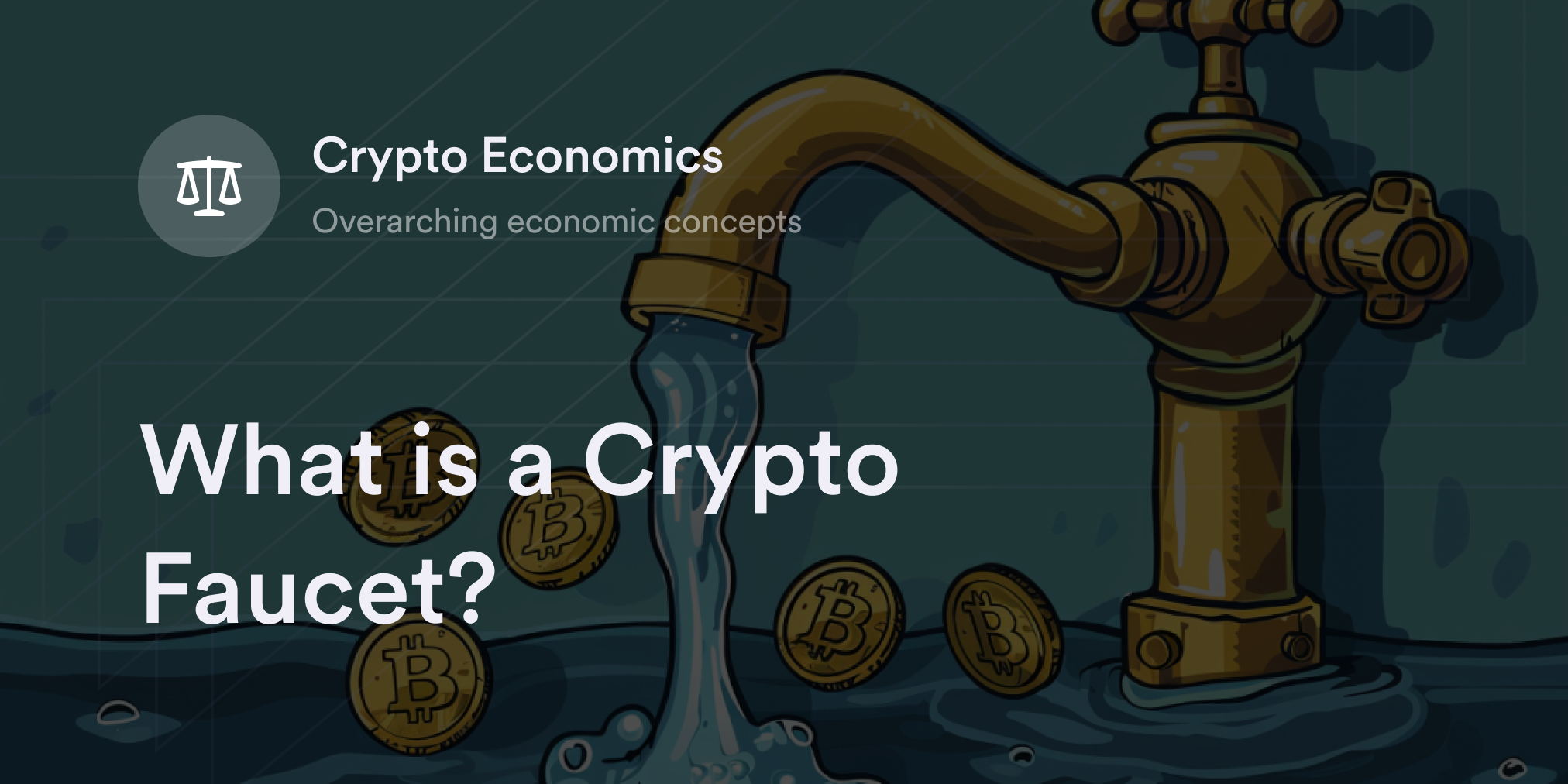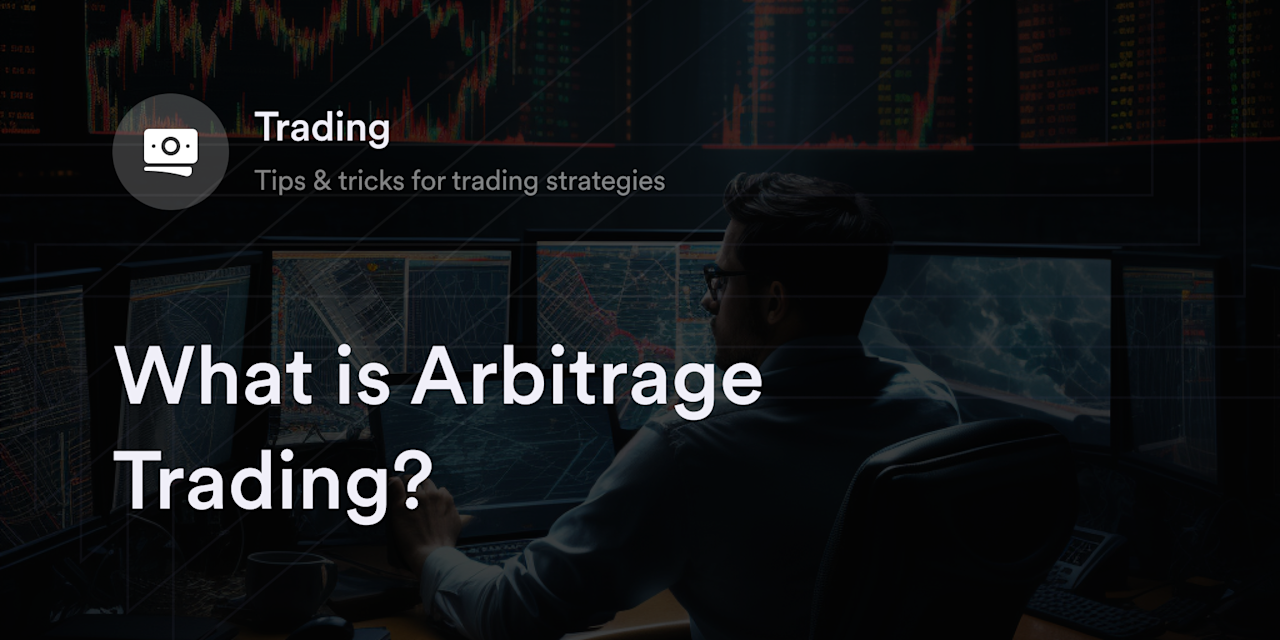
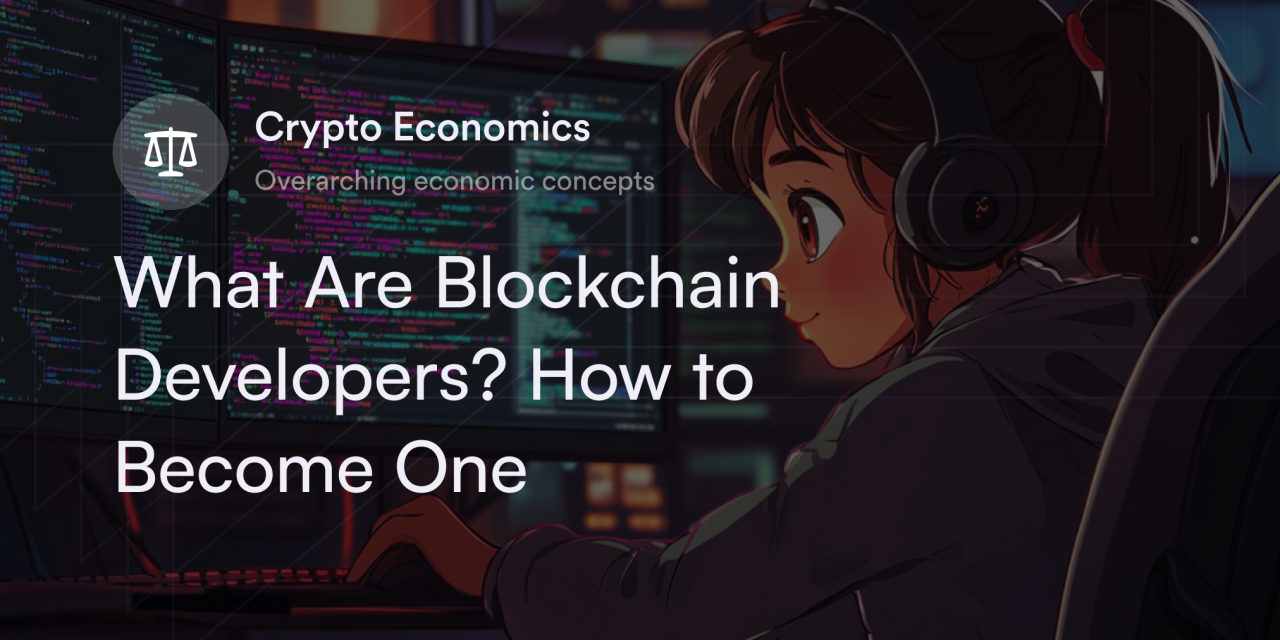

It's no secret that software development is a hot profession in the digital economy. But with growing popularity comes increased competition to break into the coding industry. To maintain an edge in this hi-tech field, developers are always on the hunt for new ways to upskill and stand out from the pack.
Recent stats suggest that the demand for blockchain tech jobs ballooned 552% in 2022, and more vacancies open up each year. As more businesses begin to explore the benefits of blockchain—and as experimentation in crypto-related fields continues to rise—learning the basics of blockchain is becoming more in demand in the global developer community.
In this guide, we’ll discuss what blockchain developers do, how they differ from regular software devs, and how to break into this field. We’ll also explore the pros and cons of this career path.
What is a blockchain developer?
Blockchain developers share the same job responsibilities as traditional developers—including programming, deploying, and testing software applications—but they have a deep knowledge of decentralized tech. Rather than working with centralized systems, a blockchain developer focuses on building or maintaining peer-to-peer (P2P) digital protocols, including stand-alone blockchains or projects built on top of chains like decentralized applications (dApps), layer-2 protocols, or crypto tokens.
In addition to coding proficiency for blockchain-specific languages, these specialized developers understand related topics such as cryptography, self-executing smart contracts, and consensus mechanisms.
Whether someone builds in the blockchain ecosystem or performs smart contract audits for crypto clients, they qualify as blockchain developers if they interact with the decentralized Web3 technology.
Core blockchain developers versus software blockchain developers
Blockchain development encompasses many discrete tasks, but bifurcating this job into two categories is common: core versus software.
All blockchain developers use software in their day-to-day operations, but core developers focus on a blockchain system's underlying infrastructure rather than user-facing digital experiences like dApps. A core blockchain developer spends time building and perfecting the consensus algorithms and code for an entire network like Bitcoin (BTC) or Ethereum (ETH). They lead the way in proposing, testing, and deploying upgrades on their respective chains.
While core developers work behind the scenes, blockchain software developers leverage these base layers to build decentralized digital experiences. Think of core developers as laying the foundation for a city and software developers creating the houses, restaurants, and businesses in the area.
Typically, software developers have strong programming skills and understand how to write smart contracts on a respective blockchain, but they don't need to have the high-level technical knowledge core developers have on consensus algorithms or cryptography. A few examples of projects blockchain software developers get involved with include decentralized finance (DeFi) applications, metaverse games, and tokenized real-world assets (RWAs).
Benefits and risks of becoming a blockchain developer
Getting involved in blockchain typically boosts every developer's resume, but there are a few unique challenges to pursuing crypto as a career path. From job flexibility to market volatility, here are some of the potential pros and cons to consider before enrolling in a blockchain developer course:
Blockchain development pros
Demand from multiple industries: The interest in integrating with blockchain systems continues to spill into markets outside the finance sector, including supply chain management, gaming, and real estate. In recent years, job listings for blockchain-related specialists jumped 395% on sites like LinkedIn, giving developers with this skill set more opportunities on their job quest.
Opportunity to explore cutting-edge technology: Developers who love the intellectual stimulation of experimenting with the latest software technologies will find plenty of new and exciting protocols popping up in web3. Since blockchain is a young space, there's significant room for experimentation, creativity, and growth.
Job flexibility: Blockchain developers work online, which means they often enjoy the conveniences of at-home or hybrid work models.
Networking opportunities: The web3 community has grown substantially since Bitcoin's founding, and there are now plenty of networking opportunities for blockchain developers interested in professional development. From online forums to major conferences like CoinDesk's Consensus, people have increased access to expand their skills and professional networks in decentralized tech.
Blockchain development cons
Lack of formalized education and certifications: Many formal blockchain course options exist, but crypto isn't a standard part of the curriculum on many college campuses. Developers interested in Web3 concepts must be self-directed learners willing to study in an unstructured environment.
Crypto market volatility: The ups and downs of crypto prices aren't as reliable as the cash flows for established software firms and big tech companies, and not all web3 protocols succeed in the long run. Blockchain developers need to anticipate wild gyrations in the crypto market and develop a risk management strategy if their projects don't pan out.
Unique security considerations: The decentralized and open-source nature of blockchain reduces the risk of counterparties but exposes cryptocurrencies and dApps to threats like smart contract code exploits, 51% attacks, and cryptojacking. Developers who aren't hyper-vigilant and neglect screenings like smart contract audits risk serious and irreversible financial losses.
Rapid pace of development: Some developers love the speed and innovation of crypto technology, while others find it exhausting to keep tabs on this field. Blockchain developers must feel comfortable constantly staying up-to-date on the latest news and breakthroughs in the web3 sector.
How to become a blockchain developer
Becoming a blockchain developer isn't as straightforward as more established professions, but programmers can take a few general steps to get their feet wet in web3 design. If developers already have a solid foundation in computer science, software engineering, and coding, they have the building blocks to start building on blockchains.
Here are four steps to follow:
1. Start with software fundamentals
A few institutions now offer courses and degrees in blockchain, but many programmers involved in the crypto industry major in related fields like computer science, software development, or web development.
Whichever specific field students choose as their major, grasping core concepts such as computer engineering, data structures, and algorithms before getting into blockchain is helpful. For example, formal coursework in a computer science-related field gives developers a starting base to build their blockchain-specific career.
2. Research and experiment with blockchain technology
Once students feel comfortable with software development basics, they're in a solid position to begin exploring concepts, technologies, and frameworks in blockchain. The specific skills blockchain developers focus on depend on the area of web3 they want to develop (e.g., dApps, blockchain architecture, or smart contract deployment).
For example, Ethereum developers often learn ETH coding languages like Solidity and Vyper, while those on Solana (SOL) are more familiar with Rust.
Look into the specific requirements on a blockchain using online educational hubs like dYdX Academy and coding forums like GitHub to figure out the essential skills for a specific area of blockchain development. For those who prefer a formal educational atmosphere, consider looking into structured blockchain developer certification programs or bootcamps on reputable sites like the Blockchain Council or Coursera.
3. Build a Web3 portfolio
After extensive training in blockchain theory, students should put this knowledge into practice by contributing to open-source projects on GitHub or experimenting with tools like HardHat for Ethereum, Anchor for Solana, or the Cosmos SDK on Cosmos (ATOM).
This is the phase where they should start building dApps and tokens or contributing to core development, networking, and gaining first-hand experience working on-chain. Recording these professional achievements in a resume helps highlight blockchain proficiency for future employers.
4. Follow crypto news and start networking
Trends and tech in blockchain move fast, so developers need ways to stay on top of the latest tools in Web3 development. They must keep a close eye on reputable crypto news sites like CoinDesk and CoinTelegraph and remain active in crypto forums such as BitcoinTalk and code repositories like GitHub for new info on updates, code changes, and distributed ledger technology.
It's also worth researching crypto-related networking events on sites like LinkedIn to learn more about the industry and meet fellow developers and companies interested in blockchain development.
Start your blockchain training on dYdX Academy
For those interested in broadening their blockchain tech knowledge, check out a wealth of guides on dYdX Academy. From essential topics like consensus algorithms and crypto mining to advanced concepts like ZK rollups and Merkle trees, dYdX Academy offers a comprehensive repository of crypto information. And for eligible traders looking to jump into the crypto market, dYdX offers a low-fee decentralized exchange for crypto perpetual contracts. Discover the ins and outs of how dYdX works—including our latest news and updates—on the official dYdX blog, and start trading on dYdX today.
Disclosures
The content of this article (the “Article”) is provided for general informational purposes only. Reference to any specific strategy, technique, product, service, or entity does not constitute an endorsement or recommendation by dYdX Trading Inc., or any affiliate, agent, or representative thereof (“dYdX”). Use of strategies, techniques, products or services referenced in this Article may involve material risks, including the risk of financial losses arising from the volatility, operational loss, or nonconsensual liquidation of digital assets. The content of this Article does not constitute, and should not be considered, construed, or relied upon as, financial advice, legal advice, tax advice, investment advice, or advice of any other nature; and the content of this Article is not an offer, solicitation or call to action to make any investment, or purchase any crypto asset, of any kind. dYdX makes no representation, assurance or guarantee as to the accuracy, completeness, timeliness, suitability, or validity of any information in this Article or any third-party website that may be linked to it. You are solely responsible for conducting independent research, performing due diligence, and/or seeking advice from a professional advisor prior to taking any financial, tax, legal, or investment action.
You may only use the dYdX Services in compliance with the dYdX Terms of Use available here, including the geographic restrictions therein.
Any applicable sponsorship in connection with this Article will be disclosed, and any reference to a sponsor in this Article is for disclosure purposes, or informational in nature, and in any event is not a call to action to make an investment, acquire a service or product, or purchase crypto assets. This Article does not offer the purchase or sale of any financial instruments or related services.
By accessing this Article and taking any action in connection with the information contained in this Article, you agree that dYdX is not responsible, directly or indirectly, for any errors, omissions, or delays related to this Article, or any damage, injury, or loss incurred in connection with use of or reliance on the content of this Article, including any specific strategy, technique, product, service, or entity that may be referenced in the Article.
